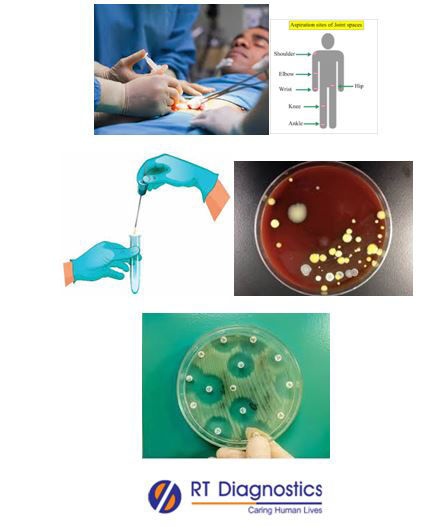Culture & Sensitivity - Fluid
Culture and Sensitivity on fluids are performed to analyze the presence of harmful pathogens such as bacteria, viruses, and/or presence of any other foreign growth or infestations in the body fluids to detect for screening the infection and for its confirmation. Culture & Sensitivity test (performed in the laboratory to examine for any microbial growth in the given sample specimen such as blood, urine, CSF, etc) in the blood/urine is done that helps to investigate for any growth of foreign pathogens (external microbes) like bacteria and other microorganisms present in the blood (any given sample specimen). Hence this laboratory test is ordered as a key test to detect any infection in suspected pathologies like fever – eg. Fever of unknown origin (related clinical manifestation).
Culture & Sensitivity – Fluid:
Why Culture and Sensitivity (Fluid) Test?
CLINICAL INFORMATION
Body fluids are generally defined as the fluids that are present within the body of a person. Since 60% of the body is made up of liquid components namely blood/plasma, urine, sweat, semen, pleural fluid, pericardial fluid, CSF, synovial fluid, etc, the suspected patient’s sample specimen is aspirated for biochemical analysis . Two main body fluid components include the intracellular fluid (ICF) and the extracellular fluid (ECF) compartments. Aspiration of fluids (eg from any of the body fluids and/or bronchial wash – In respiratory pathologies, amniotic fluid, etc), is used as sample specimen for investigation of screening of diagnosis and confirmation of underlying pathologies i.e infectious disease and/or disorders present in the body. The mainstay of treatment lies in the clinical assessment and by fluid tapping eg. CSF, ascetic fluid, pleural fluid, etc (in pathological conditions). Further investigations are required to differentiate (between transudate or exudate) to study the pathological basis behind its cause for effective treatment (since the treatment is purely dependent on the causative agent and or the mechanism behind it). In case of confirming an infection caused by harmful pathogenic microbe using the culture method, further tests such as sensitivity tests are followed soon after to determine antibiotic resistance for a better prognosis.
Hence Culture and sensitivity (fluid) test help in the appropriate screening, detection, diagnosis, and prognosis of the patient. Additional tests include clinical assessment to check for the presence of portal hypertension, signs of cancer, etc. Other tests include a clinical investigation by a physician for signs and symptoms of ascitis eg. Inspection - jaundice, palmar erythema, spider angioma, bulging flanks, Virchow node, elevated jugular venous pressure, palpation – superficial and deep palpation, checking for shifting dullness, puddle sign, etc, anasarca (cardiac and/or nephritic syndrome) and also tests such as radiological imaging, CT scan, ultrasound, etc.

This Multi-Specialty Clinical Referral Laboratory RT DIAGNOSTICS provides precise and accurate tests with an extensive range of testing services to the medical centers to help in the diagnosis and identification of pathology in the test specimens for infectious diseases and also to evaluate the function of organ systems of the patient. It prevents further complications and helps to stabilize and restore health to near normalcy at the earliest without delay.



